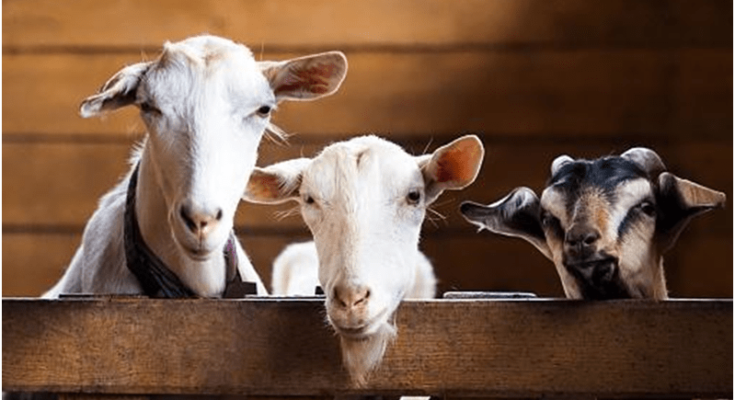Animal nutrition plays a crucial role in the productivity of animals, as it determines the availability of nutrients essential for their growth, reproduction, and overall health. Proper nutrition can help animals reach their genetic potential for production, whether for milk, eggs, meat, or other animal products.
Several factors can affect animal nutrition, including the quality and quantity of feed, the presence of any nutrient deficiencies or imbalances, and the animal’s age, breed, and physiological status.
For example, young animals have different nutritional requirements than adults, and pregnant or lactating animals have higher nutrient needs. Keep reading to understand the role of animal nutrition in animal productivity.
Providing Animal Nutrition
To ensure that animals receive proper animal nutrition, it is essential to carefully formulate and balance their diet based on their specific needs. This can involve providing a combination of feedstuffs, such as grains, hay, and supplements, and providing clean water and adequate space for feeding and movement.
Proper animal nutrition can also help prevent common health problems like malnutrition, digestive disorders, and reproduction issues. It can also improve the overall efficiency of animal production, leading to higher yields and profitability for farmers and ranchers.
Proper animal nutrition can enhance animal productivity in several ways. Here are a few examples:
1. Animal Nutrition Improves Growth and Development
Proper animal nutrition is essential for optimal growth and development because it provides the necessary nutrients for the animal’s growth, repair, and maintenance of tissues. These nutrients include carbohydrates, proteins, fats, minerals, and vitamins.
Carbohydrates, proteins, and fats provide energy for the animal’s body to function properly. They also serve as building blocks for tissues, hormones, and enzymes. Minerals, such as calcium and phosphorus, are needed to develop strong bones and teeth. Vitamins are essential for many different bodily functions, including the metabolism of nutrients, the functioning of the immune system, and the production of hormones.
Proper animal nutrition is especially important during rapid growth and development, such as in young animals or during pregnancy. It is also essential for maintaining the health and productivity of adult animals. Inadequate nutrition can lead to poor growth, impaired development, and reduced productivity. It can also lead to various health problems, including malnutrition, poor immune function, and reproductive issues.
On the other hand, providing a balanced diet that meets the animal’s specific nutritional needs can help ensure optimal growth, development, and productivity.
2. Enhances Animal’s Reproductive Performance
Proper animal nutrition is essential for maintaining the reproductive health of animals and improving their reproductive performance. Adequate nutrition is necessary for the proper functioning of the reproductive system and for the production of eggs, sperm, and milk.
For example, protein is essential for producing hormones, such as estrogen and testosterone, which regulate the reproductive system. Minerals, such as calcium and phosphorus, are essential for developing strong bones and teeth, especially for pregnant and lactating animals. Vitamins, such as vitamin A, are essential for the proper functioning of the immune system and the production of hormones.
Proper nutrition can also help improve fertility by supporting the development and maturation of eggs and sperm. It can also help improve milk production in lactating animals, leading to higher yields and increased profitability. Inadequate nutrition can lead to various reproductive problems, such as poor fertility, low milk production, and reproductive disorders. On the other hand, giving a balanced diet that meets the animal’s specific nutritional needs can help ensure optimal reproductive performance.
3. Animal Nutrition Ensures Better Immune Function
Proper animal nutrition is vital for maintaining the health and productivity of animals, and it plays a critical role in supporting the immune system. Adequate nutrition is necessary for the proper functioning of the immune system, which helps protect the body from infections and diseases.
Certain nutrients, such as vitamins and minerals, are especially important for supporting immune function. For example, vitamin A is necessary for the proper functioning of the immune system and for producing antibodies.
Vitamin E is an antioxidant that assists and protects cells from damage caused by free radicals, which can weaken the immune system. Zinc is also critical for immune function and is involved in producing white blood cells and activating immune cells.
Better immune function can increase animal productivity by helping animals fight off infections and diseases, reducing mortality rates, and improving overall health. When animals are healthy, they can grow and develop, reproduce, and produce useful products more efficiently, such as milk or meat.
Proper nutrition is vital for supporting immune function, as it provides the necessary nutrients required for the proper functioning of the immune system. Adequate nutrition can help improve the production of antibodies, white blood cells, and other immune cells, which can help protect the body from infections and diseases.
In addition to proper nutrition, other factors, such as vaccination and good husbandry practices, can also support immune function and help prevent the spread of infections and diseases. Overall, a healthy immune system is essential for maintaining the health and productivity of animals, and it is an important factor to consider in any animal production system.
4. Animal Nutrition Increases Feed Efficiency
Proper animal nutrition can help improve the efficiency of animal production by enabling animals to convert feed into useful products, such as milk or meat, more efficiently. This can result in higher yields and increased productivity.
Several factors can affect feed efficiency, including the quality and digestibility of the feed, the presence of any nutrient deficiencies or imbalances, and the animal’s age, breed, and physiological status.
For example, animals fed a high-quality, balanced diet formulated to meet their specific nutritional needs may be more efficient at converting feed into useful products than animals fed a poor-quality diet lacking essential nutrients.
Proper animal nutrition can also help reduce feed waste and improve feed utilization, which can help reduce production costs and increase profitability. Overall, proper animal nutrition is vital for maintaining the health and productivity of animals and ensuring that they can convert feed into useful products efficiently. A balanced diet that meets the animal’s specific nutritional needs can help improve feed efficiency and productivity.
Final Thoughts
Adequate nutrition is essential for proper growth and development in animals. A balanced diet that meets the animal’s specific nutritional needs can help ensure optimal growth and development, leading to improved productivity.
Proper nutrition is also important for maintaining the reproductive health of animals. Adequate nutrition can help improve fertility, milk production, and other aspects of reproductive performance, leading to increased productivity. Proper nutrition can also support the immune system, helping animals to better fight off infections and diseases. This can lead to reduced mortality rates and improved productivity.
Proper nutrition can also help animals convert feed into useful products, such as milk or meat, more efficiently. This can result in higher yields and increased productivity. Overall, proper animal nutrition is essential for maintaining the health and productivity of animals, and it is an important factor to consider in any animal production system.




